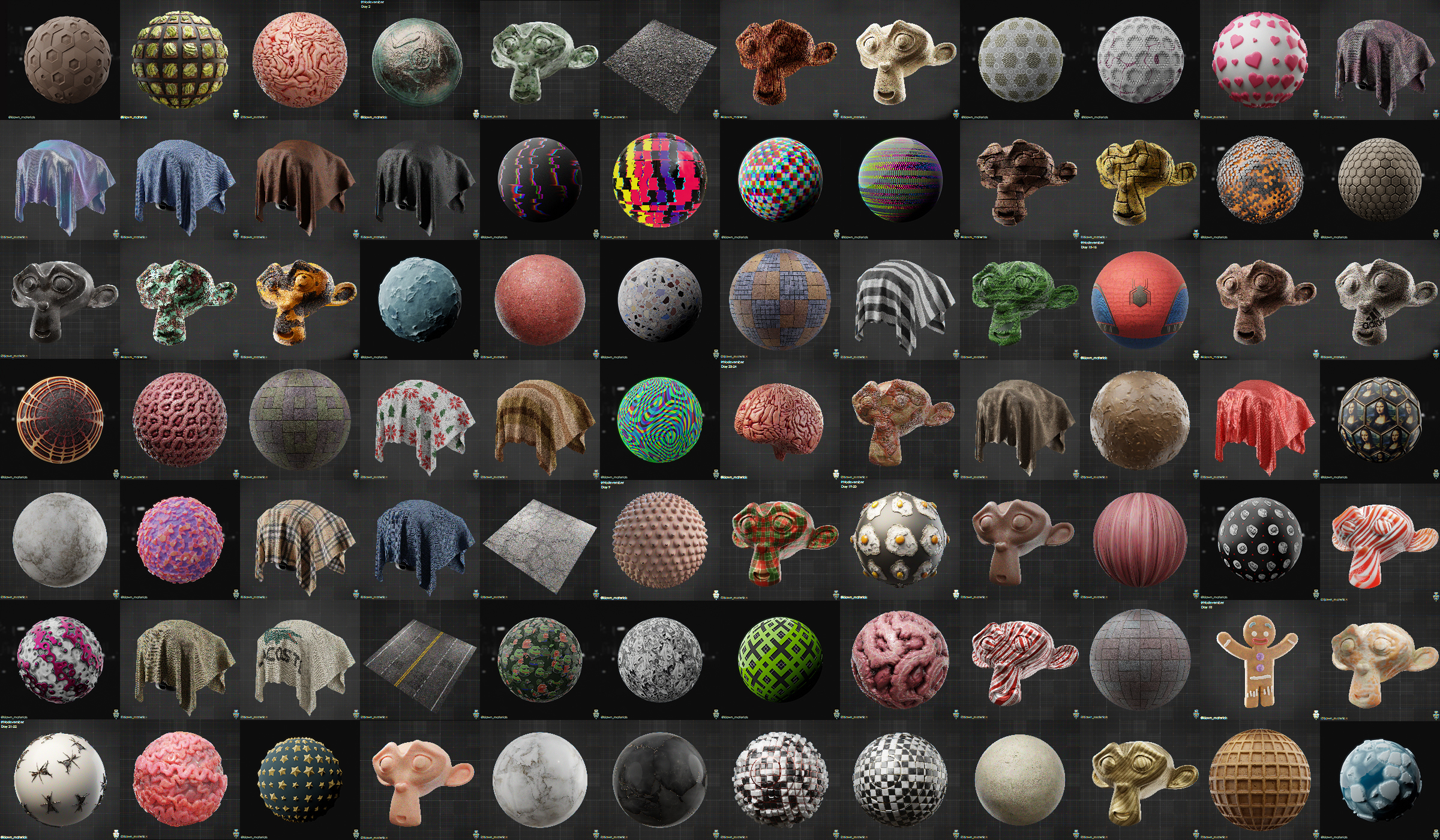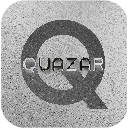All Types Of Procedural Fabric
Knitted, leather, silk, velvet... - Literally every type of fabric textures.
40 Ready-to-use procedural materials. You need more? Then create your own texture with 23 customizable Node Groups.
Supports new Blender 3.0 Asset Browser.
Blend file has the "K.M. - " prefix and each material has the "All.Fbr. - " prefix. PNG Thumbnails included.
Simply Cloth addon - great addition to Klawn Fabric Materials
The best choice for your cloth simulations.
Incredibly realistic and fully procedural materials by Daniel De Klawn.
Includes Nodevember Spider-man Material!
Only knitted and cross-stich materials were rendered with displacement. So you don’t need a ton of subdivisions to get a beautiful results!
To create more realistic renders, I recommend you to make a particle system with small translucent hairs.
Node Groups:
1. Basic Dots
2. Basic Farbric
3. Custom Fabric
4. Diagonal Fabric
5. Fabric Cross Texture
6. Fluffy Texture
7. Knitted Fabric
8. Leather Texture
9. Lily Pattern
10. Line Dots
11. Lines Pattern
12. N-gon Pattern
13. Pill
14. Polka Dot Pattern
15. Straight Fabric
16. Stretch Fix
17. Stretched Fabric
18. Tartan Pattern
19. Vectornator
20. Christmas Pattern
21. Fabric Color
22. Leopard Pattern
23. Vector Distortion
Materials:
1. All Fabric Node Groups
2. All.Fbr. - Bootlace
3. All.Fbr. - Burlap
4. All.Fbr. - Cross-stitch
5. All.Fbr. - Gift Ribbon
6. All.Fbr. - Image Print
7. All.Fbr. - Image Print Alpha
8. All.Fbr. - Jeans Bright
9. All.Fbr. - Jeans Dark
10. All.Fbr. - Jeans Holo
11. AII.Fbr. - Jeans Silver
12. All.Fbr. - Knitted Basic
13. All.Fbr. - Knitted Christmas
14. All.Fbr. - Knitted Lines Pattern 1
15. All.Fbr. - Knitted Lines Pattern 2
16. All.Fbr. - Knitted Stripes
17. All.Fbr. - Knitted Wave
18. All.Fbr. - Knitted Wide
19. All.Fbr. - Knitted Zigzag
20. All.Fbr. - Leather Black Holes
21. All.Fbr. - Leather Eco
22. All.Fbr. - Leather Fresh
23. Аll.Fbr. - Leather Old
24. All.Fbr. - Pattern Dots 1
25. All.Fbr. - Pattern Dots 2
26. All.Fbr. - Pattern Polka Dot
27. All.Fbr. - Pattern Tartan
28. All.Fbr. - Prisoner
29. All.Fbr. - Silk
30. All.Fbr. - Spidey Blue
31. All.Fbr. - Spidey Red
32. All.Fbr. - Velvet
33. All.Fbr. - Camo
34. All.Fbr. - Down Jacket
35. All.Fbr. - Flag
36. All.Fbr. - Knitted Sport
37. All.Fbr. - Leopard
38. All.Fbr. - Shirt Stripes
39. All.Fbr. - Shirt Tartan
40. All.Fbr. - Torn
If you are new to shaders then watch this start lesson on YouTube - https://www.youtube.com/watch?v=84ihoMLGkxQ&t
Why procedural shader textures instead of regular PBR maps?
- Infinite
resolution. Textures that you normally use are always limited by their
resolution and in close they are just mess of pixels. Procedural
textures, on other hand, have infinite resolution and a huge number of
elements that can be changed to suit your needs!
- With W data you can make a different texture with the same settings
to a group of objects. For example imagine that you need to make a
wooden fence. If you use a regular texture, then all your boards will
be the same, you can of course change the scale and change the
coordinates a little, but you still be limited to one image. Using
procedural textures, you can customize the materials as you like using
object data and W input. Apply it to all objects so they will be
absolutely unique, but consisting of the same material.
- Mix with other procedural materials and textures using mask
outputs. Combine colour, height and other maps with mixRGB node and mask outputs.
- And if you worry about render time then remember that you always can bake your customized textures. This is a very simple process. If you do not know how to bake then watch this video by Olav3D.
Images rendered in cycles.
The Discord server for 3D artists
The best blender shaders library and free node samples on my


























